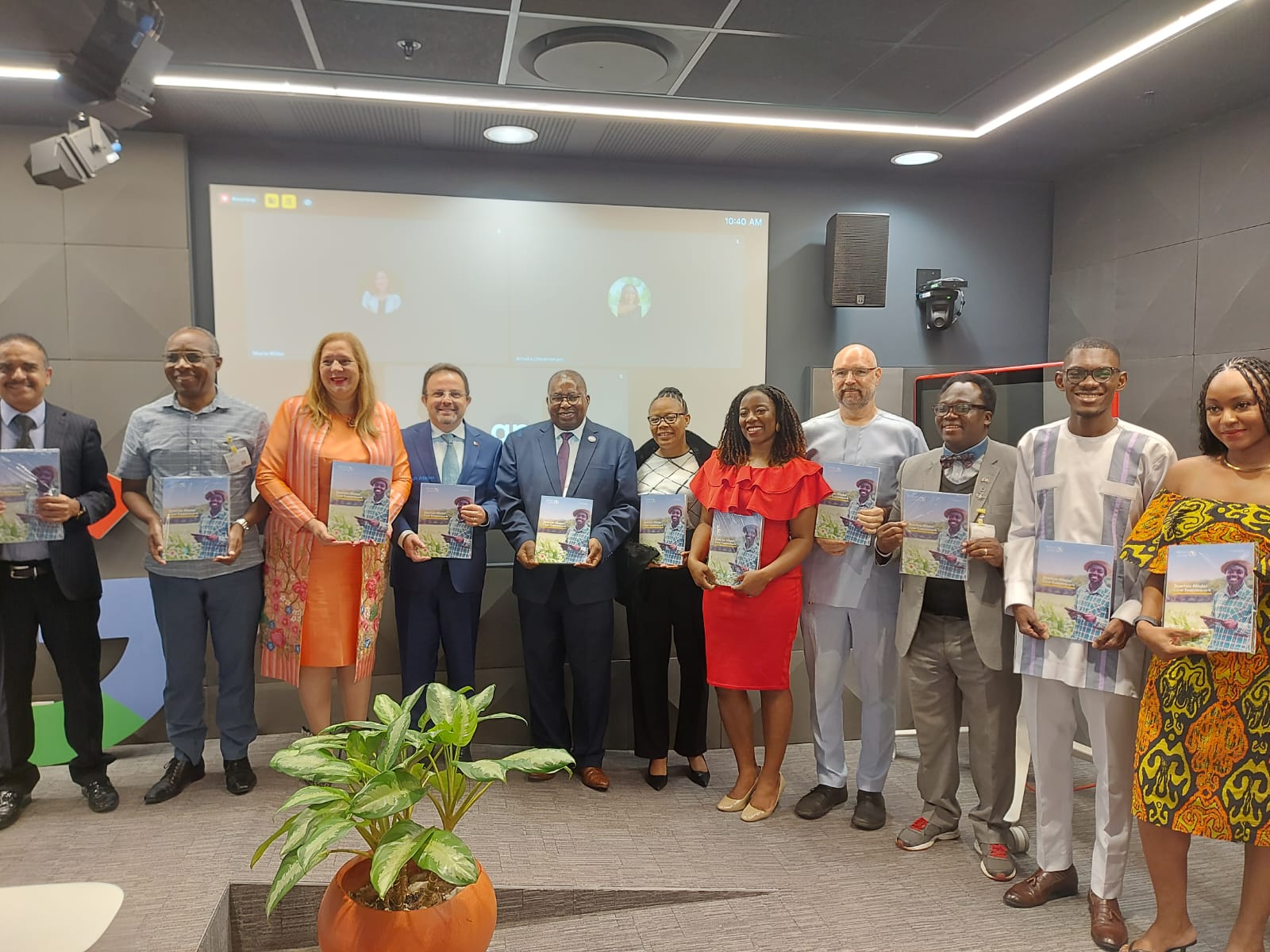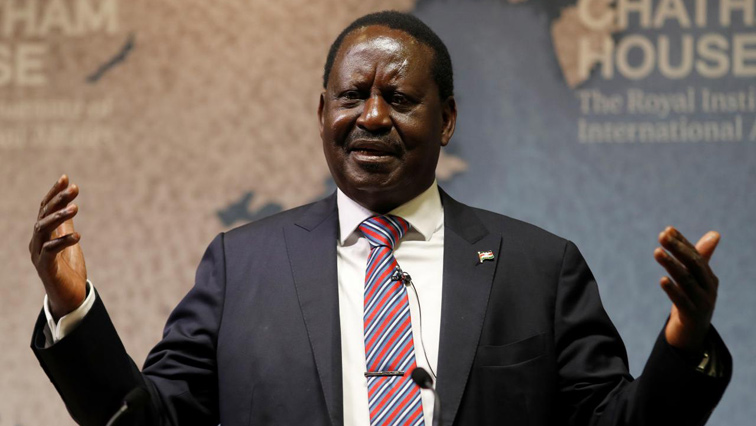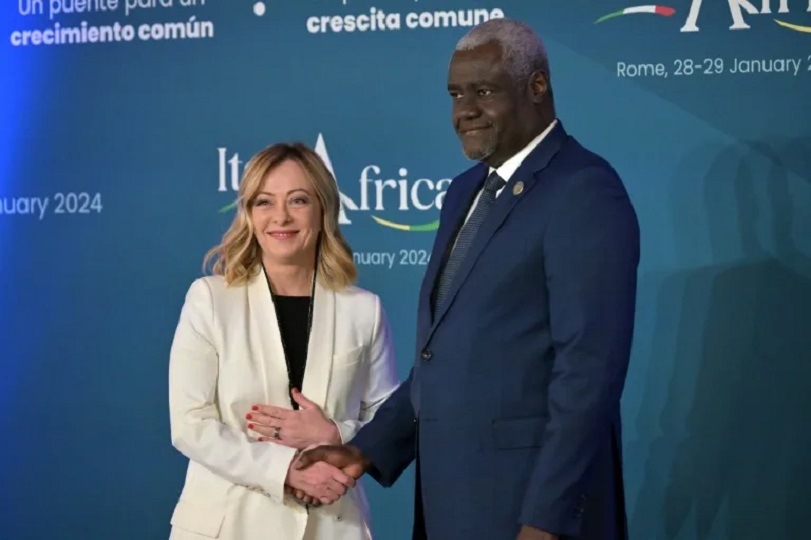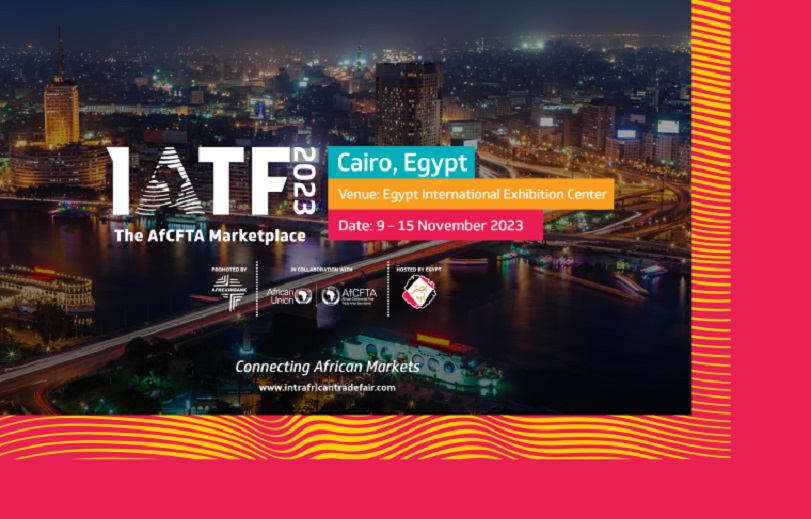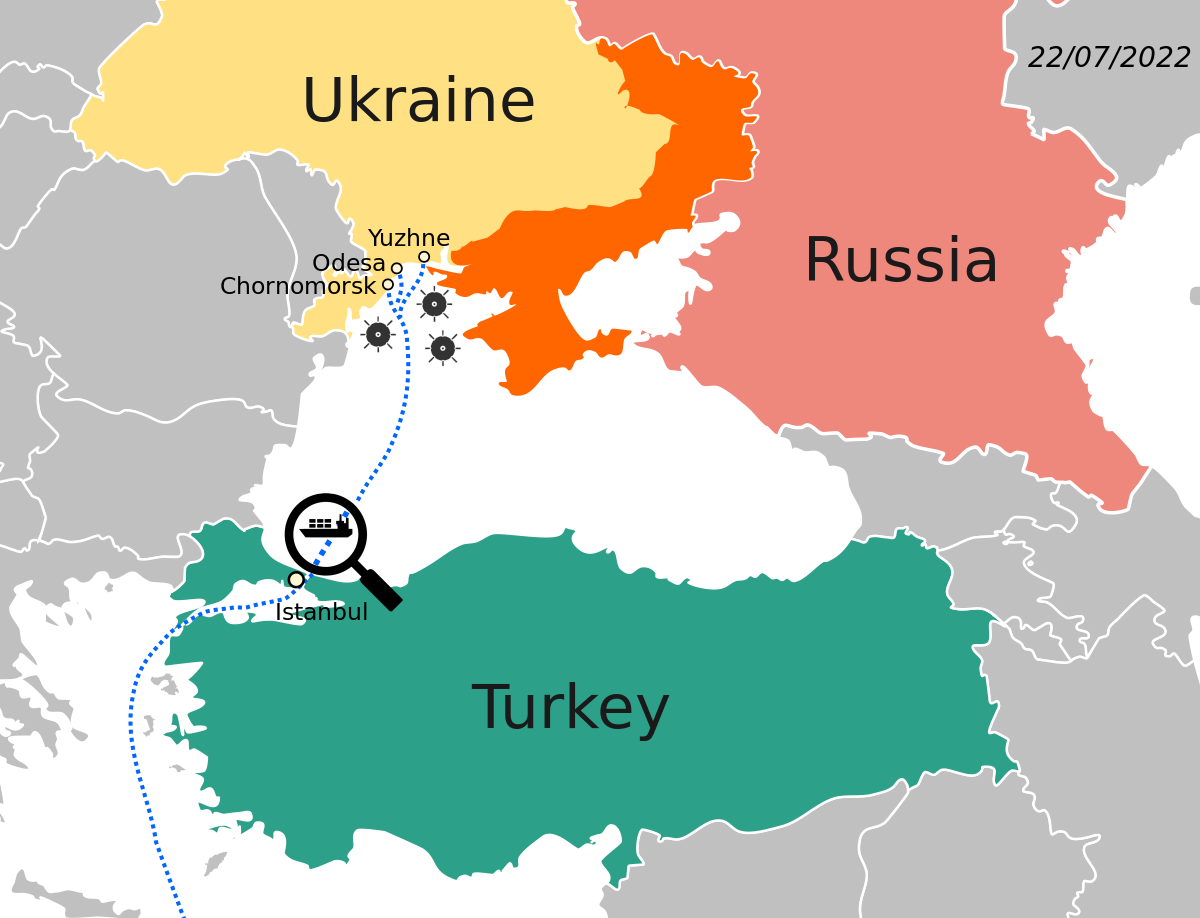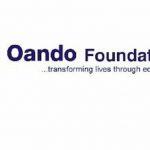World
African Union Developing 10-Year Comprehensive Agriculture Programme
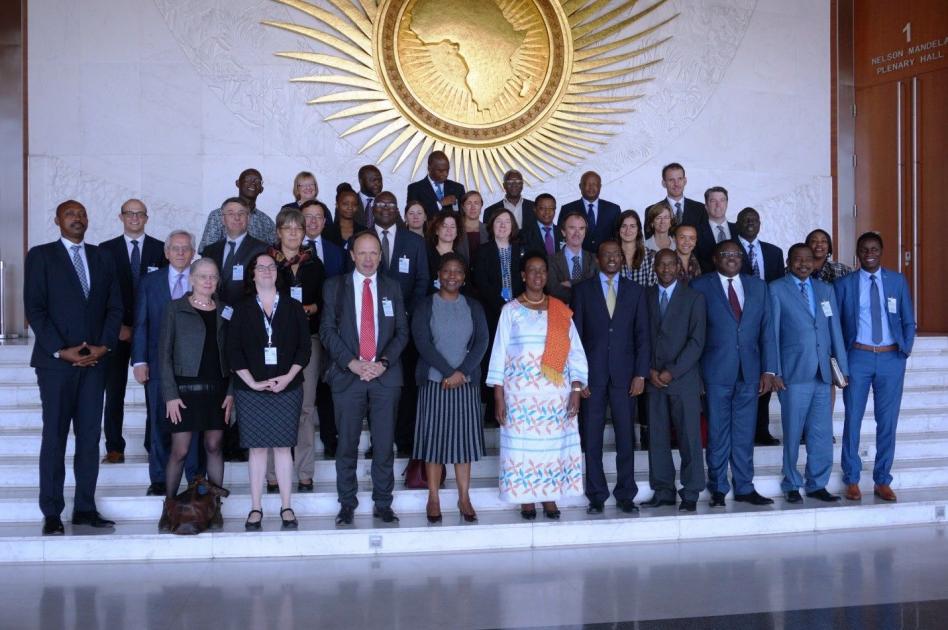
By Kestér Kenn Klomegâh
For three working days, 9th –11th January 2025, in the Speke Resort Conference Centre in Uganda’s capital, Kampala, the African Union Commission (AUC) will host the Extraordinary Summit on the Post-Malabo Comprehensive Africa Agriculture Development Programme (CAADP). This Summit is supported by the Government of Uganda.
The event is organized jointly by the African Union Commission, Department of Agriculture Rural Development Blue Economy and Sustainable Environment (DARBE) and African Union Development Agency- New Partnership African Development (AUDA-NEPAD).
Dignitaries will deliver statements on the consideration of the Kampala Declaration, the Comprehensive African Agriculture Development Programme (CAADP) Ten-Year Strategy and Action Plan (2026-2035); the draft Statute of Africa Food Safety Agency; and the report on selection of African Union Centres of Excellence for Research and Training in Fisheries, Aquaculture, Aquatic Biodiversity Conservation and Ecosystems Management.
The Objectives of the Summit:
The convening of the extraordinary session of the Assembly is specifically to:
Endorse the draft Kampala CAADP Declaration. The draft declaration provides a vision for transforming Africa’s Agrifood Systems for the period: 2026-2035.
Endorse Ten-Year CAADP Strategy and Action Plan: 2026-2035. This plan provides details on how to achieve the goals and targets in the draft Kampala CAADP Declaration.
Risk Management and Mitigation
The post-Malabo CAADP strategy will span ten years, from 2626 to 2035. Given the longtime horizon, many risks and uncertainties could affect the strategic positioning of the agri-food systems transformation agenda to deliver on its goals. There are external socioeconomic, environmental, and other shocks that might come up, which will demand that the strategy be agile enough to respond to such unforeseen developments. The strategy will therefore call for institutional adaptation to changes in a complex and rapidly changing context. Major risks and uncertainties will need to be identified and outlined together with their respective mitigation actions.
Key interventions to ensure better risk management include:
- Identify potential risks (e.g., political instability, climate change) and put in place mechanisms for dealing with or mitigating such risks
- Identify health crises, including pandemics or epidemics, early and develop mechanisms for minimizing negative impacts
- Identify and address gender inequalities or biases and restrictive social norms that may limit the access of women and youth to education, resources, and decision making processes thereby preventing them from fully participating in and benefiting from agricultural activities or initiatives
- Invest in durable peace because it is essential for building resilient agri-food systems (from the local to global levels) and affects agricultural production, food security, market access, investment, resilience, and social cohesion. Establishing and maintaining peace is critical for enabling long-lasting investment to unlock the full potential of Africa’s agri-food systems. The Kampala CAADP Declaration will need to emphasize establishing conflict-resolution mechanisms at the community level while strengthening local markets and value chains.
- Promote household insurance and other coping mechanisms that can help mitigate the impact of health shocks on livelihoods. These mechanisms will be key to enhancing the resilience of communities.
- Enhance public health surveillance systems to detect and respond to health threats, including of zoonotic origin. It will also be important to strengthen food safety measures to prevent health shocks related to foodborne diseases.
- Financial resources will be required to achieve the Kampala CAADP declaration’s resilience objectives. Specifically, households need access to credit, savings, and other financial instruments that help them weather economic shocks.
- Food price monitoring: It will be necessary to implement policies that stabilize food markets and prevent price volatility to ensure a steady supply of food and agricultural inputs.
- Capacities development of African governments to formulate resilience-focused policy measures is a critical step and a priority for the CAADP Strategy and Action Plan. Mainstreaming resilience-focused policies will trickle down to operational actions led by various stakeholders towards sustainable agri-food systems.
Background: The Comprehensive Africa Agriculture Development Programme (CAADP) has been crucial in driving agricultural transformation across Africa since its inception in 2003. The program is aimed at increasing food security and nutrition, reducing rural poverty, creating employment, and contributing to economic development while safeguarding the environment. CAADP aims for a 6% annual growth rate in the agricultural sector, with African Union member states allocating at least 10% of their budgets to agriculture.
Building on the Maputo Declaration (2003-2013), the 2014 Malabo CAADP Declaration renewed commitment to CAADP and established ambitious goals for 2025, including eradicating hunger, reducing malnutrition, tripling intra-African trade, and building resilience of livelihoods and production systems. The Malabo Declaration underscored the importance of mutual accountability through agricultural biennial reviews and recognized the essential role of related sectors like infrastructure and rural development. During the Thirty-Seventh Ordinary Session of the African Union Assembly in February 2024, the Heads of State and Government expressed concern that the continent is not on track to meet the Malabo CAADP goals and targets by 2025. This has spurred a call for the development of a post-Malabo CAADP agenda to build resilient agri-food systems.
It is in this context that the An Extraordinary Summit of The African Union Assembly of Heads of States and Governments is scheduled for January 9th to 11th 2025 in Kampala, Uganda, to deliberate on the post-Malabo CAADP agenda to consider the draft Ten-Year CAADP Strategy and Action Plan with its associated draft Kampala Declaration on Advancing Africa’s Inclusive Agrifood Systems Transformation for Sustainable Economic Growth and Shared Prosperity.
Format and Structure of the Summit: The Extraordinary Summit will start with a one-day meeting of the Ministers responsible for Agriculture, Rural Development Water and Environment on the 9th of January 2025, to be followed by Joint Session of the Ministers of Agriculture, Rural Development, Water and Environment together with the Ministers of Foreign Affairs on the 10th of January 2025.
The sessions will feature two presentations the: i) draft CAADP Ten-Year Strategy and Action Plan (2026-2035); ii) draft Kampala CAADP Declaration and both will be done in closed sessions. The Ministerial sessions will be structured to encourage inclusive and interactive conversations and dialogue among the Ministers, as well as between the Ministers and key strategic stakeholders. At the same time, it will enable the Ministers to review the strategic documents presented to them for their consideration and recommendations to the Assembly.
The Assembly of Heads of State and Government will convene on the 11th of January 2025 to endorse the: i) draft Ten-Year CAADP Strategy and Action Plan (2026-2035); ii) draft Kampala CAADP Declaration.
Participants: The Extraordinary Summit on the CAADP Agenda will be attended by Heads of States and Government of the African Union Member State, Ministers of Foreign Affairs, PRCs, Ministers and Experts in-Charge of Agriculture (forestry, fisheries, crops and livestock), Rural Development, Water and Environment, RECs, Youth, Women, Non-State Actors, Media, Academia and Development Partners
African Union: The AU is guided by its vision of “An Integrated, Prosperous and Peaceful Africa, driven by its own citizens and representing a dynamic force in the global arena.” The African Union (AU) is a continental body consisting of the 55 member states that make up the countries of the African Continent. To ensure the realisation of its objectives and the attainment of the Pan African Vision of an integrated, prosperous and peaceful Africa, Agenda 2063 was developed as a strategic framework for Africa’s long term socio-economic and integrative transformation. Agenda 2063 calls for greater collaboration and support for African led initiatives to ensure the achievement of the aspirations of African people.
World
Irvine, Dreaminfluence Accelerate Growth of Africa’s $3bn Creator Economy

Irvine Partners, a leading creative communications agency with offices in Africa and Europe, has signed an exclusive licence with Dreaminfluence as their Africa partner. Dreaminfluence, an all-in-one platform that empowers brands to build and scale influencer marketing has executed 1,000s of influencer campaigns and worked with over 20,000 influencers.
This innovative platform’s digital capabilities will support the content creators who are driving Africa’s rapidly expanding $3.08 billion creator economy. Despite creators on the continent taking advantage of platforms like TikTok, African creators still earn significantly less than their counterparts in other regions, despite producing high-quality content. Furthermore, infrastructure limitations and a digital skills gap hinder the progress of the creator ecosystem.
Monetization should not be out of reach for African creators says Rachel Irvine, CEO of Irvine Partners. She adds that “Dreaminfluence provides digital infrastructure and connects creators to brands, backing their work so they too can unlock opportunities while brands can grow their reach with authentic content that resonates with audiences.”
Dreaminfluence CEO, Mads Wedderkopp, explains “We have worked with many leading brands in the Nordics and are excited to finally bring our platform to Africa through this exclusive partnership with Irvine Partners.”
“The decision to work with Irvine Partners as our Africa partner was a no-brainer, given the roster of clients they serve, and their continental and European footprint.”
Some of the leading brands that use Dreaminfluence for their influencer campaigns are Nivea, L’Occitane, and Estee Lauder Group.
How it works
Dreaminfluence was founded in 2018, to transform influencer marketing from being about affiliate links and discount codes to focusing on actual brand ambassadorship. This vision is translated into the features that Dreaminfluence offers, for both brands and influencers.
These brand features include:
-
Discovery of influencers: Brands can find the right influencers for their campaigns, without wasting time on influencer outreach
-
Campaign analytics: Track campaign performance, report the value and identify the best-performing influencers
-
Building relationships: Influencers move from short-term brand campaigns to long-term brand ambassadorship
-
Campaign management: Manage influencer payments, product shipping and secure content usage rights
-
Paying multiple influencers at a time with one click
For influencers, the features are:
-
Apply to join a brand team or campaign through the app
-
Be selected as part of the ambassador team
-
Join new campaigns when they are published
-
Run all campaign admin including payments, content ideas, and approvals through the app
The Dreaminfluence difference
Irvine Partners is constantly working with influencers across Africa on different campaigns for its clients and Dreaminfluence provides an innovative way to streamline agency relations with leading and emerging content creators on the continent.
Mohale Moloi, Content Director at Irvine Partners explains that “creator marketing studies tell us that more than 50% of brands plan to increase their spending on influencer marketing in 2025. But making sure these campaigns deliver results across the whole marketing funnel requires an in-depth understanding of market nuances, which is what we bring to the table.”
By working with a dynamic platform like Dreaminfluence, Irvine Partners will take influencer campaigns to the next level by combining local insights with a platform that makes everything from campaign selection to payments more efficient.
“We are most excited about the actionable campaign data and high ROI that Dreaminfluence offers,” says Moloi.
World
Cameroonian Diaspora Congress: An Essential Vector for Cameroon’s Influence in Russia
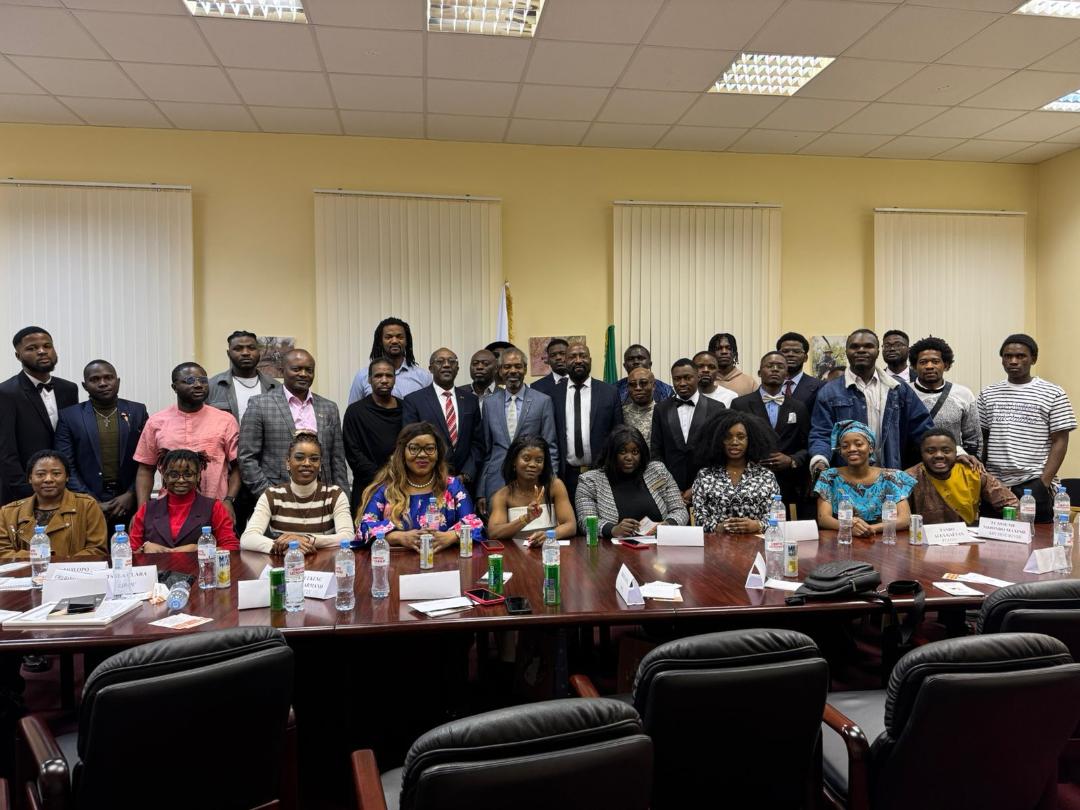
By Louis Gouend
The Cameroonian diaspora in the Russian Federation, although relatively recent, constitutes an essential vector for Cameroon’s influence and the maintenance of strong ties with the nation. In this perspective, and following a fruitful video conference on January 27, 2024, with the Minister of Youth and Civic Education, it was decided to organize, on February 8 and 11, 2025, the first celebration of Youth Day within the Russian diaspora.
This unprecedented initiative, benefiting from the Minister’s valuable support, aimed to consolidate patriotism and the spirit of initiative among Cameroonian youth residing in Russia, by offering a framework for exchange and promotion of Cameroonian cultural wealth. It mobilized Cameroonian students, young professionals, and entrepreneurs established in Russian territory.
The commemoration of the 59th anniversary of Cameroon’s Youth Day took the form of a dual celebration: a physical meeting at the Cameroonian Embassy in Moscow on February 8, 2025, and a virtual meeting on Zoom on February 11, 2025. These events brought together a total of more than 150 participants from over 50 cities in Russia, representing diverse backgrounds, including presidents of Cameroonian associations, members of the Diaspocam executive council, deans, honorary guests, and embassy officials.
The diaspora had the honour of welcoming, via video conference, Mr Mounouna Foutsou, Minister of Youth and Civic Education, whose encouragement and vision were a source of inspiration. The Minister outlined the productive initiatives implemented by the Cameroonian government in favour of its youth in the diaspora in Russia, emphasizing the willingness to support projects led by young entrepreneurs through a specific support mechanism and the operationalization of the guarantee fund.
During his address, the Minister recalled the commitments made during the video conference of January 27, 2024, emphasizing the need for increased collaboration between the government and the youth of the diaspora. He stressed the immense potential represented by this youth and reaffirmed the government’s commitment to addressing their concerns.
Among the initiatives put in place to support the youth of the diaspora, he mentioned:
- The Guarantee Fund for Young Entrepreneurs (FOGAJEUNE), which finances projects in four key sectors (agriculture, digital economy, industry/crafts and technological innovation).
- The special DIALYJ window, designed to promote co-ventures between young people from Cameroon and the diaspora.
- The Program to Aid the Return and Integration of Young People from the Diaspora (PARIJEDI), which facilitates the return and integration of young people in Cameroon.
“We express our deep gratitude to the Cameroonian government and personally to Minister Mounouna Foutsou for their support of our initiative,” said the President of Diaspocam, Louis Gouend. “Thanks to their assistance and the support of the Cameroonian Embassy in Russia, we were able to organize this important event, which has strengthened ties between the diaspora and Cameroon.”
Aware of the positive impact of this first celebration, we hope that this innovative initiative will be included in the calendar of activities of the Ministry of Youth and Civic Education for the years to come.
Diaspocam establishes a legal platform to come together, helps each other, interacts and establishes viable strategic networks and partnerships; presents, shares and expands proven diaspora business models; promotes and assists businesses and investments in Cameroon.
It strengthens a good image of Cameroon in Russia while maintaining close liaison with the Cameroonian and Russian governments and any other representative body pursuing objectives similar to those of the Association. Cameroonian Diaspora in the Russian Federation is a public organization which encourages participation, representation, diversity and cooperation between Cameroon, African diaspora and Russian society.
World
African Union Launches Credit Rating Agency to Rival Fitch, Others
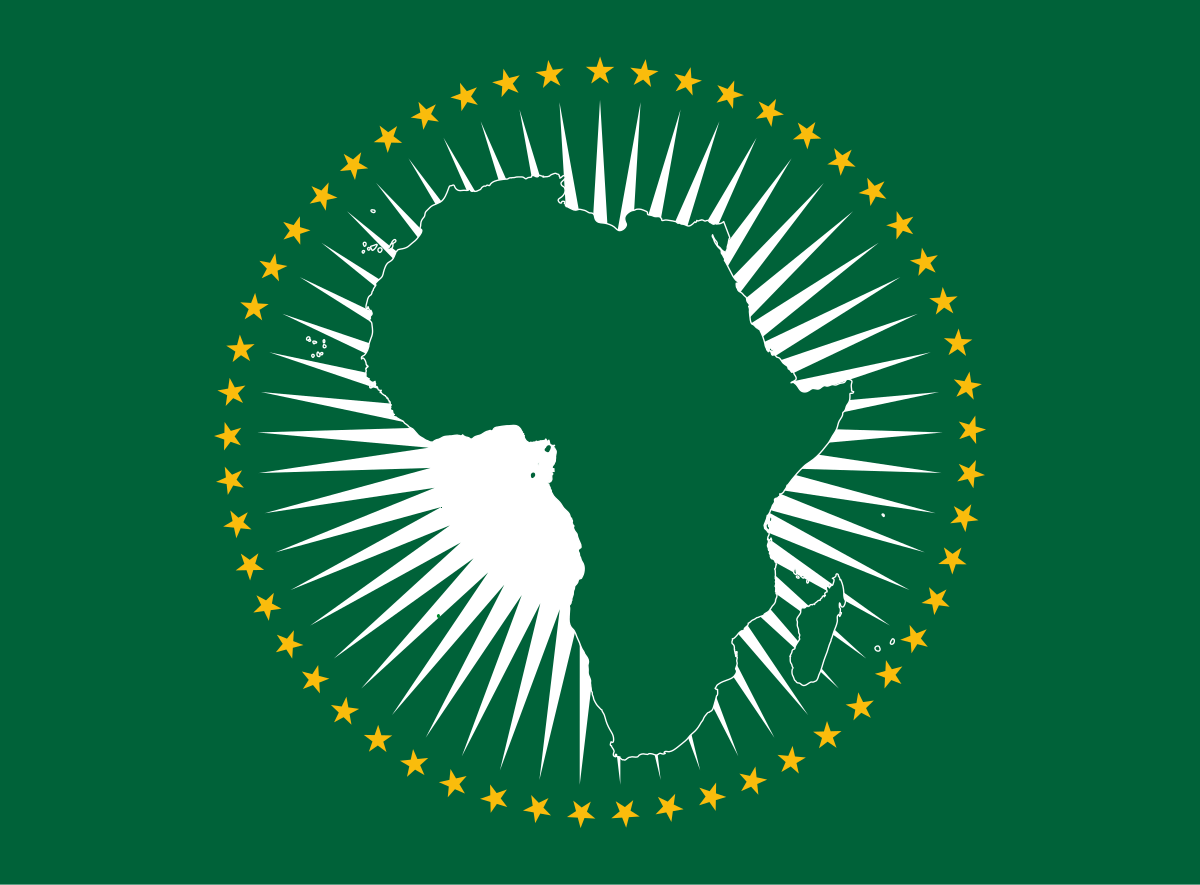
By Adedapo Adesanya
The African Union has announced the launch of its rating agency, the African Credit Rating Agency (AfCRA) to provide accurate ratings for countries on the continent.
According to Kenya’s President, Mr William Ruto, while unveiling the new agency at an AU event held in Addis Ababa, Ethiopia on Friday, AfCRA will address biases by global rating firms.
Global firms like Moody’s, Fitch and Standard & Poor (S&P) are some of the ratings agency which provide insights into African countries to aid investors and stakeholders.
There have been criticisms that these ratings lead to higher borrowing costs for African countries and make it harder for them to access international financial markets.
“Global credit rating agencies have not only dealt us a bad hand, they have also deliberately failed Africa,” Mr Ruto stated during the launch.
“They rely on flawed models, outdated assumptions, and systemic bias, painting an unfair picture of our economies and leading to distorted ratings, exaggerated risks, and unjustifiably high borrowing costs.”
According to President Ruto, improving Africa’s rating by one notch could unlock $15.5 billion in additional funding for the continent, which could help replace a significant portion of official development assistance or be invested in Africa’s infrastructure needs.
Despite Africa’s abundant natural wealth, only two African nations are currently ranked as investment grade.
“It is time for Africa to use the right scale, one that reflects its true weight,” Mr Ruto added.
The African Union has previously criticized global rating agencies’ characterization of African economies. In January, the AU pointed out that Moody’s Ratings’ fluctuating assessment of Kenya’s outlook was flawed.
“As the continent continues its march towards economic integration and resilience, the establishment of the African Credit Rating Agency (AfCRA) represents a pivotal step in asserting Africa’s position on global financial governance.”
The agency aims to provide fair, transparent, and development-focused credit ratings that reflect the realities and potential of African economies.
The idea comes more than a year since the AU officially announced its plans to move forward with the project since September 2023.
The push for an African credit rating agency became viable in 2022 when Senegal’s former president Macky Sall, then the chairman of the AU, called for a new system to “end the injustices” faced by African countries.
-

 Feature/OPED5 years ago
Feature/OPED5 years agoDavos was Different this year
-
Travel/Tourism9 years ago
Lagos Seals Western Lodge Hotel In Ikorodu
-

 Showbiz2 years ago
Showbiz2 years agoEstranged Lover Releases Videos of Empress Njamah Bathing
-

 Banking7 years ago
Banking7 years agoSort Codes of GTBank Branches in Nigeria
-

 Economy2 years ago
Economy2 years agoSubsidy Removal: CNG at N130 Per Litre Cheaper Than Petrol—IPMAN
-

 Banking2 years ago
Banking2 years agoFirst Bank Announces Planned Downtime
-

 Sports2 years ago
Sports2 years agoHighest Paid Nigerian Footballer – How Much Do Nigerian Footballers Earn
-

 Technology4 years ago
Technology4 years agoHow To Link Your MTN, Airtel, Glo, 9mobile Lines to NIN




